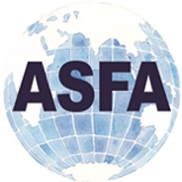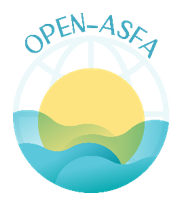Antimicrobial activity of a marine isolate of Pseudomonas cepacia k2 from Ruditapes decussatus.
DOI:
https://doi.org/10.71754/instm.bulletin.v37.928Keywords:
Biological control, Moisture, Evaporation, Incubation, Antibiotics, Disease resistance, Colonies, Thermometers, Dry weight, Enzymatic activity, Fish culture, Bacteria, Shellfish culture, Pathogenic bacteria, Bacterial diseases, Temperature, Drying; Mollusc culture, Enzymes, Pathogens, Aquaculture systems, Processing fishery products, Heat, Mortality causes, Antimicrobial activity, Antibacterial activity, Marine environment, Aquaculture, Proteolytic enzymes, Internet, Siderophores, Aeromonas hydrophila, Vibrio anguillarum, Pseudomonas cepacia, Ruditapes decussatus, Aeromonas salmonicida, Marine, MED, TunisiaAbstract
A Pseudomonas cepacia strain, designed as K2, recovered from the clam Ruditapes decussatus showed significant antibacterial activity against a number of marine bacteria including Aeromonas hydrophila , Aeromonas salmonicida and Vibrio anguillarum which are the most common pathogenic bacteria reported from the marine environment, causing high mortalities in fish and shellfish. It has been proved an early production of inhibition by the K2 strain (after 8h of incubation). The intensity of its activity is very significant and increases within the incubation period. Our preliminary study indicated that at least one of the antibacterial substances was a siderophore and one was heat labile and sensitive to a proteolytic enzyme. These results suggest that Pseudomonas cepacia K2 may be a suitable strain as a biocontrol agent in aquaculture systems.












